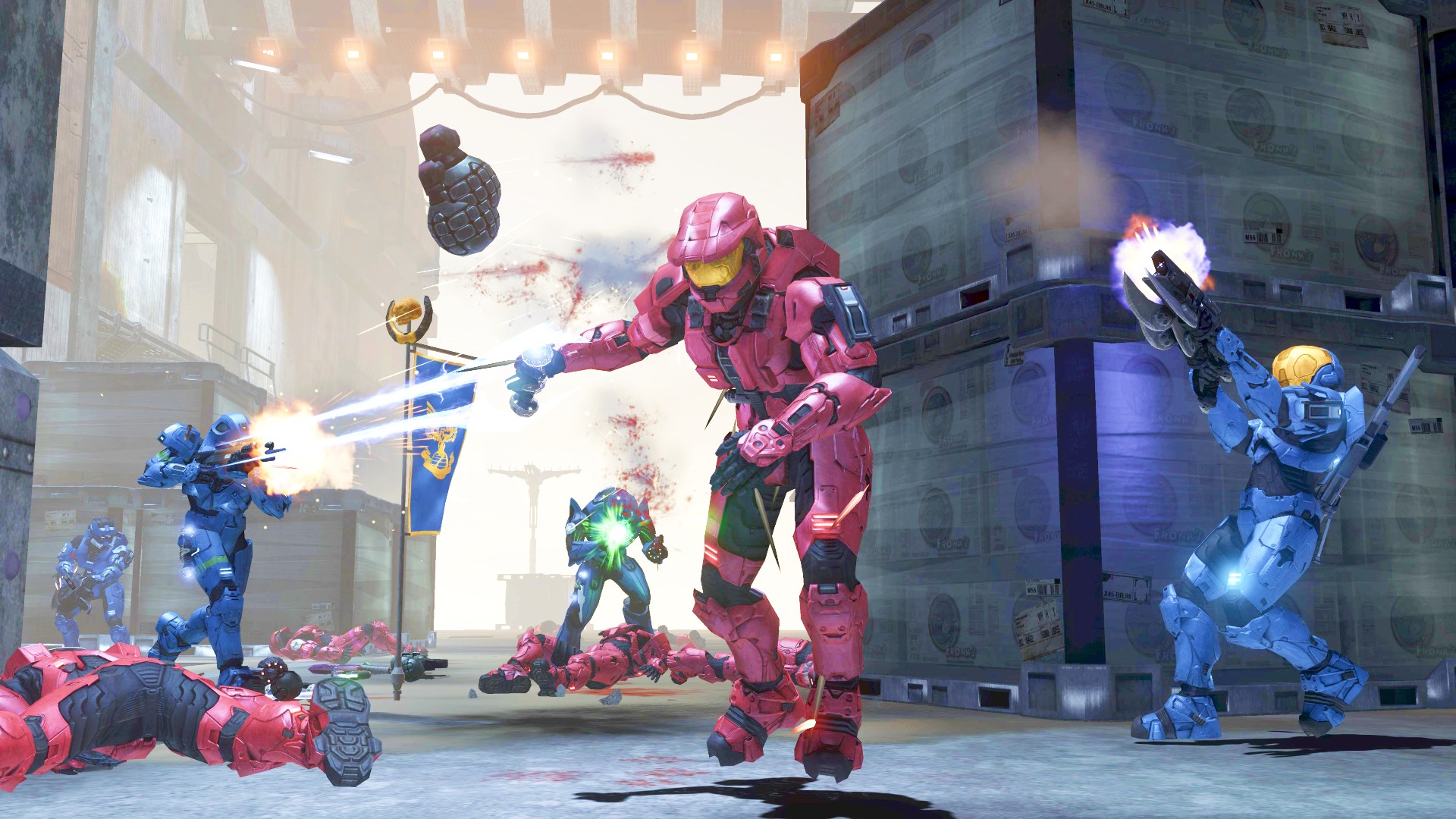If you’ve been playing Call of Duty Modern Warfare 3, or essentially any competitive multiplayer FPS over the last few years, you’ve likely found yourself frustrated at the caliber of your online opponents. While CoD, Counter-Strike, and a large variety of other shooters use a skill-based matchmaking (SBMM) system, which is designed to pair you with players of similar ability and experience, in some cases, it can make games feel too closely contested. If you want to play just for fun and enjoyment, SBMM can be frustrating, as it results in matches that are too tight and too competitive. Now, with Call of Duty MW3 finally upon us, one former Bungie developer, whose credits include the multiplayer components of Halo 2 and Halo 3, discusses some of the issues in modern online shooters.
Responding to an article about Call of Duty Modern Warfare 3, Max Hoberman, whose work on FPS games includes not just Halo, but older CoD games like World at War and Black Ops, discusses the design principles behind Halo 2’s legendary online multiplayer, and the “failure of modern skill-based matchmaking.” According to Hoberman, one of the fundamentals is variability.

“What I implemented [in Halo] cleanly divided the space into ranked and unranked matchmaking playlists,” Hoberman says. “Ranked filtered opponents based on level. This was for when you wanted a competitive match. But even then, I intentionally allowed variability in the range of levels we matched you with. This variability was a topic of hot debate internally, during development, 20 years ago. Obviously no one wants to get stomped continuously. On the flip side, it gets dull (for most people) continuously stomping others. However, it is fun having the upper hand some of the time.
“By intentionally allowing a range of skills to match together, we provided three experiences in ranked matchmaking: an easier one where you can kick butt, a harder one where you’re likely outmatched, and an evenly matched one. My theory was that a good mix of these three was ideal.”
Hoberman explains why modern skill-based systems may lead to less enjoyable experiences, even if they are, strictly speaking, more balanced. According to the former Halo developer, matching players evenly based on skill and experience might be more rewarding for spectators, but can make the actual playing experience in online shooters feel “stressful.”
“Why not always evenly match people though?” Hoberman asks. “My reasoning was that these are actually the most stressful matches of the set. Sure, they’re the most fun to watch for spectators – games come down to the wire. [But] the failure of modern skill-based matchmaking, in my honest opinion, is that it’s designed to maximize these perfect match scenarios and minimize the others. When it’s working, a majority of games become super tight, super stressful. That’s not fun for most players. Where’s the variability?”
Hoberman proposes a solution, whereby skill-based matchmaking is combined with other types of pairing, so that players rotate between games where they are being seriously challenged, where they are dominating opponents, and where there is a tense, close contest. Hoberman also emphasizes the importance of unranked matches, and how these might obey a different code of matchmaking ethics.
“The system that I designed for ranked playlists ensured a healthy mix,” Hoberman says. “Sure, it sucks watching your favorite team get their butt kicked. But it comes full circle when they’re the ones kicking butt. Throw in tight, evenly matched games every so often, and that’s a ton of fun.
“I haven’t even gotten to unranked playlists yet. I designed these to not factor in skill/level in the search for opponents. Yes, our engineers utilized the same codebase and kept skill/level as a search criteria, but we substantially de-prioritized it in matchmaking. We also didn’t track skill/level globally, only per-playlist. The net result was that unranked matchmaking allowed a very wide range of skill levels to match together for what everyone agreed was casual, inconsequential fun. Again, that’s the way it should be, in my opinion.”
When Call of Duty, Counter-Strike, or other FPS games that use SBMM are getting you down, you might feel like the answer is to separate high-ranking, high-performing players into their own lobbies. If these are the experts, who can utilize movement tricks, slide canceling, and all those upper level strategies to slaughter casual opponents, it might make sense to say they should only play against one another. Hoberman argues that this is the “easy way out,” and that developers should attempt different solutions.
“Since the natural skill-level distribution of players follows a bell curve,” Hoberman explains, “there are outliers: inherent low-skill and high-skill players. Characterizing the high-skill ones as ‘sweaty teens hopped up on Monster Energy’ is really disrespectful. Segregating high-skill players from the population at large, forcing long wait times on them, is a form of discrimination.
“Designers should strive to find a way that players of all skill levels can have fun together. Casual, inconsequential unranked matchmaking is one way. I dabbled with handicap settings and asymmetric game mode design as others. Game devs shouldn’t take the easy way out and default to segregation, though. There’s far more that can be done. Derogatory views like this, among game devs, is a cop out – and a disservice to players.”

After leaving Bungie, Hoberman founded Certain Affinity, a multiplayer design studio for hire which co-developed Halo Infinite, Doom 2016, and Halo 4, among others. In our Call of Duty Modern Warfare 3 review, we analyze multiplayer, Warzone, and the new campaign mode, which marks a low point in the history of single-player CoD.
Take a look at some of the best multiplayer games available right now, or maybe try your hand at Modern Warfare 3 with the best MW3 loadouts, to help you own the battlefield.
Also, while you’re here, make sure to follow us on Google News for daily PC gaming news, guides, and reviews.


